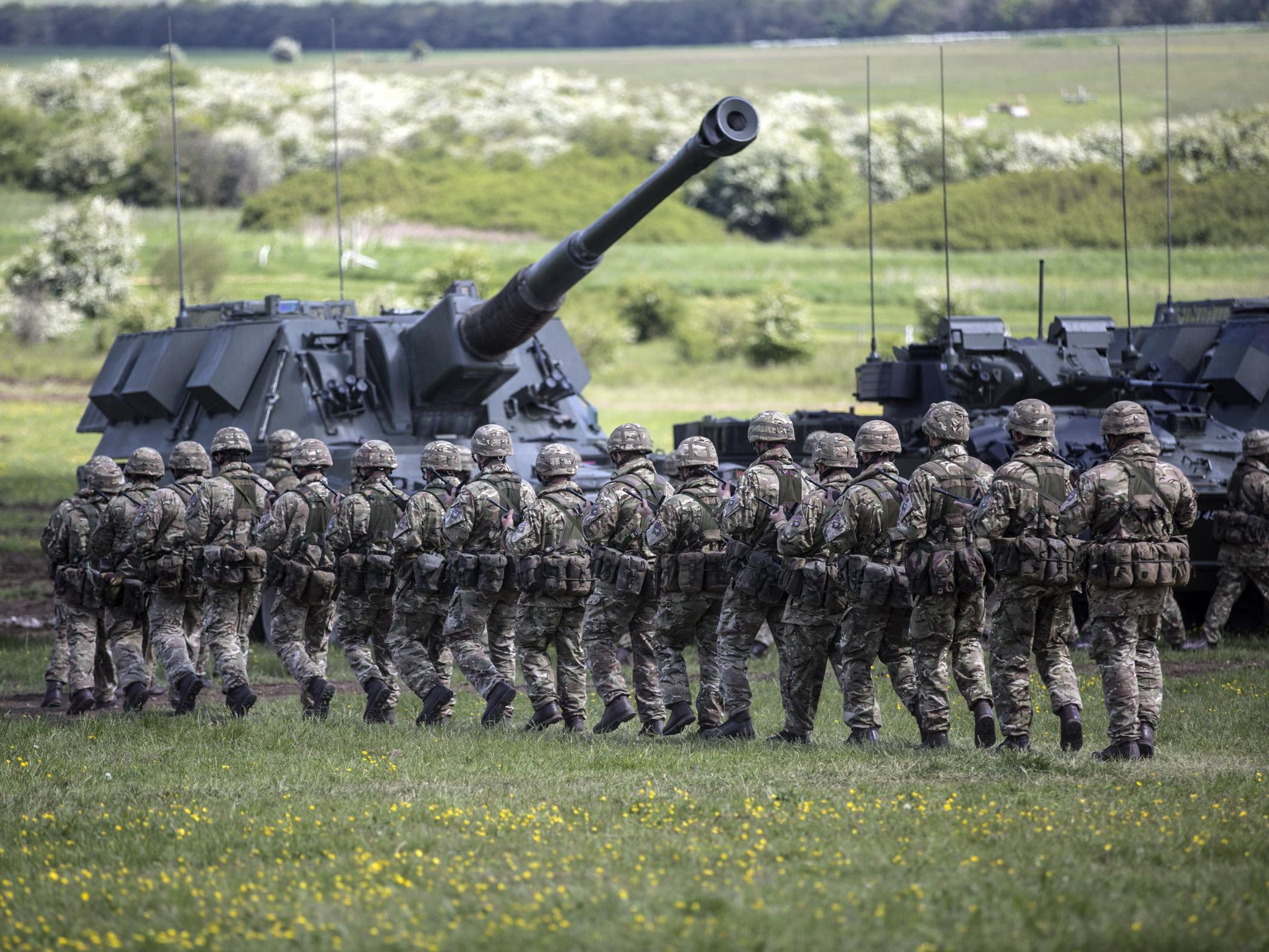Britain would be ‘comprehensively outgunned and outranged’ in war with Russia, report says
Army’s ‘critical shortage’ of artillery means it lacks ‘lacks a credible or competitive warfighting capability’, according to research

Your support helps us to tell the story
From reproductive rights to climate change to Big Tech, The Independent is on the ground when the story is developing. Whether it's investigating the financials of Elon Musk's pro-Trump PAC or producing our latest documentary, 'The A Word', which shines a light on the American women fighting for reproductive rights, we know how important it is to parse out the facts from the messaging.
At such a critical moment in US history, we need reporters on the ground. Your donation allows us to keep sending journalists to speak to both sides of the story.
The Independent is trusted by Americans across the entire political spectrum. And unlike many other quality news outlets, we choose not to lock Americans out of our reporting and analysis with paywalls. We believe quality journalism should be available to everyone, paid for by those who can afford it.
Your support makes all the difference.The British Army would be “comprehensively outgunned and outranged” in a war with Russia in eastern Europe, according to a report by a defence think tank.
A “critical shortage” of artillery means Britain currently “lacks a credible or competitive warfighting capability” in the “unlikely” event of a conflict against Russia, research by the Royal United Services Institute (Rusi) said.
It said Russian brigades outstrip British ones in terms of firepower and range, leaving them “free to prosecute fire missions with impunity” which would “thereby lead to the defeat of UK units”.
The paper recommends: “If conventional deterrence is to remain a key component of the UK’s National Security Strategy then the modernisation of its fires capabilities should be a top priority.”
A spokesperson for the Ministry of Defence described the report as “one dimensional” in that it pits the British Army against the Russian army alone and said it it was “completely implausible” the UK would fight one-on-one with Russia.
“The UK does not stand alone but alongside its Nato allies, who work closely together across air, sea, land, nuclear and cyber to deter threats and respond to crises,” the spokesperson said.
“As the largest Nato defence spender in Europe, the UK’s armed forces are well equipped to take a leading role in countering threats and ensuring the safety and security of British people at home and abroad.”
The Rusi report, titled The Future of Fires: Maximising the UK’s Tactical and Operational Firepower, considered the UK’s capabilities in the “unlikey” event of a “high-intensity conflict between Nato and Russia, in which the UK has promised to deliver a warfighting division”.
It said: “At present, there is a risk that the UK – unable to credibly fight – can be dominated lower down the escalation ladder by powers threatening escalation.”
It gives the example of the destruction of two Ukranian battalions destroyed by Russian artillery “within a five-minute period” in 2014, which it said “sent a shiver of alarm through Western militaries, for good reason”.
The report said in the early stages of a conflict with Russia, the RAF would likely look to ground forces to provide supporting firepower.
“Given that this firepower does not exist within the ground forces, it may be concluded that at present Britain lacks a credible or competitive warfighting capability in a conflict in Eastern Europe against Russia,” the report said.
“The rejuvenation and modernisation of Britain’s ground-based fires is consequently an urgent and critical priority.”
The report recommends the UK either retains a sufficient stockpile of anti-armour and high explosive munitions, or “reconsider its commitments to the Oslo Treaty, and procure cluster munitions”.
It says the “moral objections to the use of cluster munitions can be mitigated”, before adding such objections “become somewhat moot” as Russian and US forces would “employ cluster munitions liberally” in a conflict in eastern Europe.
It comes after Emmanuel Macron, France’s president, described the “brain death” of Nato due to waning US support for the military alliance.
The UK will host world leaders, including Donald Trump, the US president, in London for a 70th anniversary Nato summit in early December.
Join our commenting forum
Join thought-provoking conversations, follow other Independent readers and see their replies
Comments